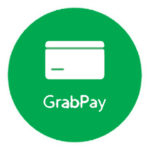
It’s Becoming Increasingly Difficult For Newcomers To Enter The Mobile Wallet Space In Indonesia
by Fintech News Singapore January 22, 2018Providers of digital goods and services in Indonesia had to be inventive to make their business work. Credit cards aren’t widespread in the country, with only an estimated 7 to 8 million out of a population of roughly 265 million owning one.
This led some e-commerce sites to resort to cash-on-delivery: Online shoppers pay in cash once the package arrives. Others use intermediaries in physical stores to help people make online purchases and pay in cash – this concept is known as Online-to-Offline (O2O). ATM transfers are another common form of payment.
Cash transactions and ATM transfers are a time-consuming process. To make things more convenient, startups developed mobile wallets that can be topped up through various channels to store electronic money to be used for future payments.
 Indonesia’s first startup valued at over one billion dollars, Go-Jek, has achieved significant traction with its mobile wallet Go-Pay. You use it to pay for rides, goods, and services bought through the app, and to settle things like your electricity bill. It also lets you transfer value to another user.
Indonesia’s first startup valued at over one billion dollars, Go-Jek, has achieved significant traction with its mobile wallet Go-Pay. You use it to pay for rides, goods, and services bought through the app, and to settle things like your electricity bill. It also lets you transfer value to another user.
Go-Pay can theoretically also be used to pay at physical stores by scanning a QR code. Go-Jek’s long-term vision for its wallet is comparable to how Alipay and WeChat Pay work in China.
Banks and regulators in Indonesia are observing this development with some concern. Payments systems like these require an electronic money (e-moeny) license issued by the Indonesian Central Bank (BI). These licenses, mandatory to operate a mobile wallet at scale, are increasingly difficult to obtain. This means this space less accessible for ambitious newcomer startups and largely reserved to major players with conglomerate backing and established industry and government connections.
A number of sizable startups like Tokopedia, Bukalapak, and Shopee felt that squeeze. They had to deactivate their wallets because their e-money licenses have yet to be approved by BI.
Here are some of the major players currently fighting for mobile wallet market share in Indonesia.
1.Go-Pay
 Go-Pay, described above, is likely the most advanced e-money payments system in the country right now. It’s integrated into the Go-Jek app.
Go-Pay, described above, is likely the most advanced e-money payments system in the country right now. It’s integrated into the Go-Jek app.
Though actual transaction data is rarely communicated, the startup’s founder Nadiem Makarim dropped some hints about its usage. He’s told media that 60% of the app’s more than 100 million monthly transactions are now settled via Go-Pay wallet (link in Indonesian).
Go-Jek’s success can in part be attributed to a first-mover advantage. In 2016, it acquired MVCommerce, a firm which already owned the e-money license. Go-Jek was then able to harness its already large user base and convert many of them into Go-Pay users. The convenience of using the mobile wallet instead of paying for each ride in cash was a good enough reason for users to try it.
This year Go-Jek is pursuing more ambitious plans in the payments space. It acquired three local players to complement its payments stack: Midtrans, a payment gateway, Mapan – an O2O startup with a footprint in rural areas, and Kartuku, one of Indonesia’s oldest payments companies that develops card reader terminals, among other things.
Go-Jek experimented with allowing offline vendors outside of its ecosystem to accept Go-Pay via QR code, but was recently asked by BI to stop the trial.
2.GrabPay
 Grab, a Go-Jek competitor, operates all over Southeast Asia. Indonesia is its largest market. The startup’s ambition for its GrabPay wallet are similar to Go-Jek’s, however, it did not have BI’s e-money license which gave Go-Jek a head start.
Grab, a Go-Jek competitor, operates all over Southeast Asia. Indonesia is its largest market. The startup’s ambition for its GrabPay wallet are similar to Go-Jek’s, however, it did not have BI’s e-money license which gave Go-Jek a head start.
Late last year, Grab chose to partner with Ovo, developed by Indonesia’s Lippo Group conglomerate. Users of Ovo wallet can link it up with Grab and use the credit stored there to pay for Grab’s rides and services.
Grab also acquired Kudo, and partners with Paytren. Both help boost its offline network. It recently also acquired an Indian mobile payments firm.
Grab hasn’t released data about GrabPay’s transaction volumes.
3.Ovo
 Ovo, created by Indonesia’s Lippo Group, is a standalone wallet app with many additional features, like personal finance management. It also allows bill payments, peer-to-peer transfers and payment via QR code at some offline merchants.
Ovo, created by Indonesia’s Lippo Group, is a standalone wallet app with many additional features, like personal finance management. It also allows bill payments, peer-to-peer transfers and payment via QR code at some offline merchants.
Lippo has also not released data about Ovo’s traction. Google’s Play store says the app has between 1 and 5 million installs. That’s far behind Go-Jek’s 10 to 50 million.
4.TCash
TCash is the mobile wallet developed by Indonesia’s state owned mobile carrier Telkomsel. Like Ovo, it lets you make peer-to-peer transfers, settle bills, and pay at certain offline merchants by QR code or contactless if your smartphone supports this.
The app also has between 1 and 5 million installs, according to Google Play.
5.Mandiri e-Money
 Unlike the mobile wallets described above, Mandiri e-Money is first and foremost a card-based system. It was developed by Indonesian state-owned bank Mandiri. Other banks, like privately held Bank Central Asia, have similar prepaid cards.
Unlike the mobile wallets described above, Mandiri e-Money is first and foremost a card-based system. It was developed by Indonesian state-owned bank Mandiri. Other banks, like privately held Bank Central Asia, have similar prepaid cards.
Mandiri’s e-money card can be topped up offline at partners such as convenience stores. Users are forced into the system because it’s mandatory for some transactions, for example to pay at toll road booths and public transport. Mandiri e-Money can also be used to shop at convenience stores. The disadvantage of card-based systems is that they can’t be topped up online, and that the system doesn’t allow peer-to-peer transfer.
Mandiri also develops its own mobile wallet solution, Mandiri e-Cash, with similar functionality as other wallets. So far, it only has between 500,000 and 1 million installs, according to Google Play.
6.Saku
 A new contestant in the mobile wallet space is i.Saku, developed by Indomaret, the country’s largest convenience store chain that’s part of the Salim Group conglomerate. So far, it offers basic wallet services and a rewards point system. It launched at the end of last year after Indomaret obtained its e-money license from BI. According to Google Play, it only counts between 100,000 and 500,000 installs so far.
A new contestant in the mobile wallet space is i.Saku, developed by Indomaret, the country’s largest convenience store chain that’s part of the Salim Group conglomerate. So far, it offers basic wallet services and a rewards point system. It launched at the end of last year after Indomaret obtained its e-money license from BI. According to Google Play, it only counts between 100,000 and 500,000 installs so far.
Featured image via Pixabay





